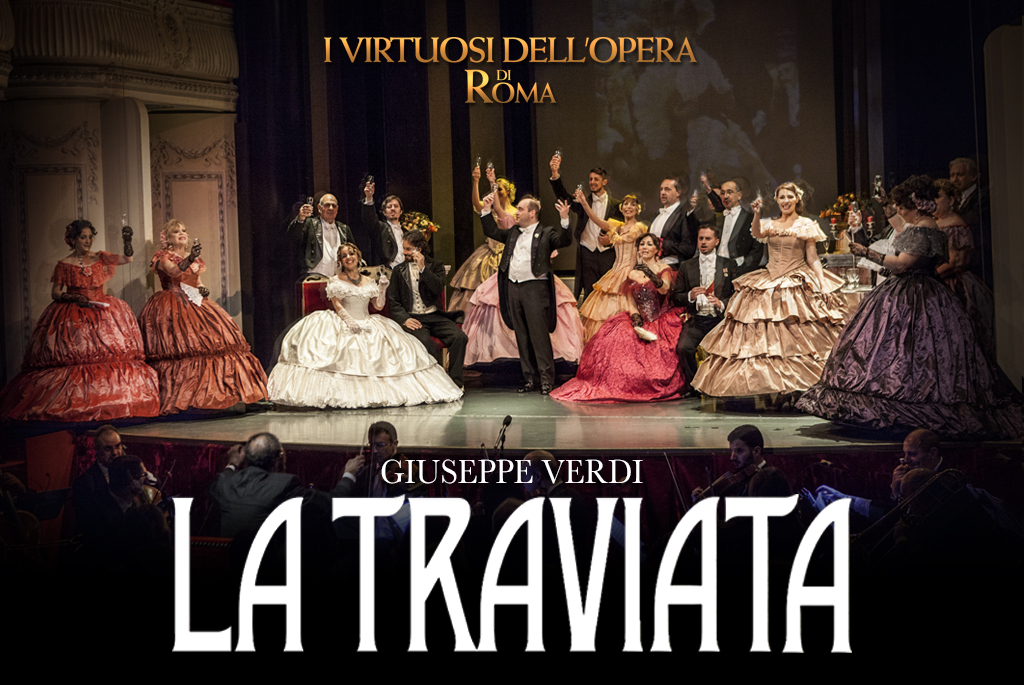

She receives a letter from Germont pere, saying that he has told Alfredo the truth about the sacrifice she made. In Act IV, Violetta is confined to bed with consumption. Violetta, faints, revives and professes her love for Alfredo.

Baron Douphol challenges Alfredo to a duel, for humiliating her. He disgraces her by hurling money at her - payment he says for her favours while they lived together. Alfredo is distraught, believing she left him for another. In Act III the starcrossed lovers meet at a party.

Torn by guilt, she leaves Alfredo, saying she wants to return to her wild ways. Alfredo leaves for Paris and in his absence his father comes to tell Violetta that she has destroyed his son's life (and the reputation of the boy's sister). Violetta has fallen for the young nobleman after all, and renounced her former life. In Act II we see the pair together in a country house outside the city. She rejects it as unreal she wants freedom to enjoy all life's pleasures. The guests leave and Violetta ponders the possibility of a true love. He declares his love, but the sceptical Violetta hands him a camellia, telling him to return when the flower has died. Gastone brings along Alfredo who has been angling to meet her for a year. In Act I we see Violetta Valery throwing a lavish party at her home to celebrate her recovery from illness. Our characters are: Violetta Valery, courtesan (soprano) Alfredo Germont, young nobleman (tenor) Giorgio Germont, Alfredo's father (baritone) Flora Bervoix (mezzo soprano) Annina (soprano) Gastone (tenor) Barone Douphol (baritone) Marchese d'Obigny (bass) Doctor Grenvil (bass) Giuseppe (tenor) Domestico di Flora (bass) Commissionario (bass). Verdi and his librettist Francesco Maria Piave had been forced to move the action in 'Rigoletto' from France to Mantua to appease the Austrian Board of Censors (Austria ruled much of northern Italy during the mid-19th century).īut the opera was a huge success, so Verdi was confident in taking on the similarly controversial subject matter of 'La Traviata' ('The lost one' or 'fallen woman'), based on 'La Dame aux Camelias' by Alexandre Dumas the younger. The book was based on the play 'Le roi s'amuse' by Victor Hugo, a thinly veiled rubbishing of the character of Louis-Philippe, the last king to rule France. The remarkably prolific Verdi (who was not averse to borrowing and reusing material from earlier works to maintain the prodigious output) had already produced two masterpieces of the repertoire in the previous two years ('Rigoletto' and 'Il Trovatore'). Although only 40, he had 18 successful operas behind him, starting with Oberto, which had been stage at La Scala in Milan in 1839. When Giuseppe Verdi composed La Traviata in 1853 he was at the peak of his powers and of his success. Giuseppe Verdi's La Traviata, composed in 1853 - an opera in 3 acts based on Alexander Dumas' The Lady of the Camelias. “ Even the love between Violetta and Alfredo is equally strong and revolutionary” continues the director “ is that of a young and beautiful prostitute, Violetta, who thanks to it embarks on a real path of personal redemption“.Tickets for the 2023 Verona Opera Festival are now available, with a wide range of performances premiering with Aida on the 16th June 2023 and ending with La Traviata on the 9th September 2023.
LA TRAVIATA LA OPERA FULL
This in full respect, word by word, note by note, of the libretto and the score ”. “ Not to provoke – says Livermore – but to tell this story more closely, to develop the richness and modernity of the masterpiece Verdi and also the scandal he created in the society of that time, in 1853. The cast will be really extraordinary: Nadine Sierra as Violetta, Francesco Meli (one of the most inflential Verdi exponent) as Alfredo and two of the most beautiful and recognizable voices of the last 50 years in the role of Giorgio Germont: Leo Nucci and Plàcido Domingo. The performance of La traviata, on Tuesday 5 October 2021, was performed without the Orchestra del Maggio, with maestro Zubin Mehta conducting Maestro Andrea Severi on the piano.ĭavide Livermore is the director, the second time for him at the Maggio after Rigoletto, and of the Violetta’s tragedy in the revolutionary scenery of 1968 Paris, during the heats of the student’s protest of those years. We kindly ask the audience to please read the COVID-19 informations about tickets and seats and how access the theater INFO COVID-19 AND GREEN PASS


 0 kommentar(er)
0 kommentar(er)
